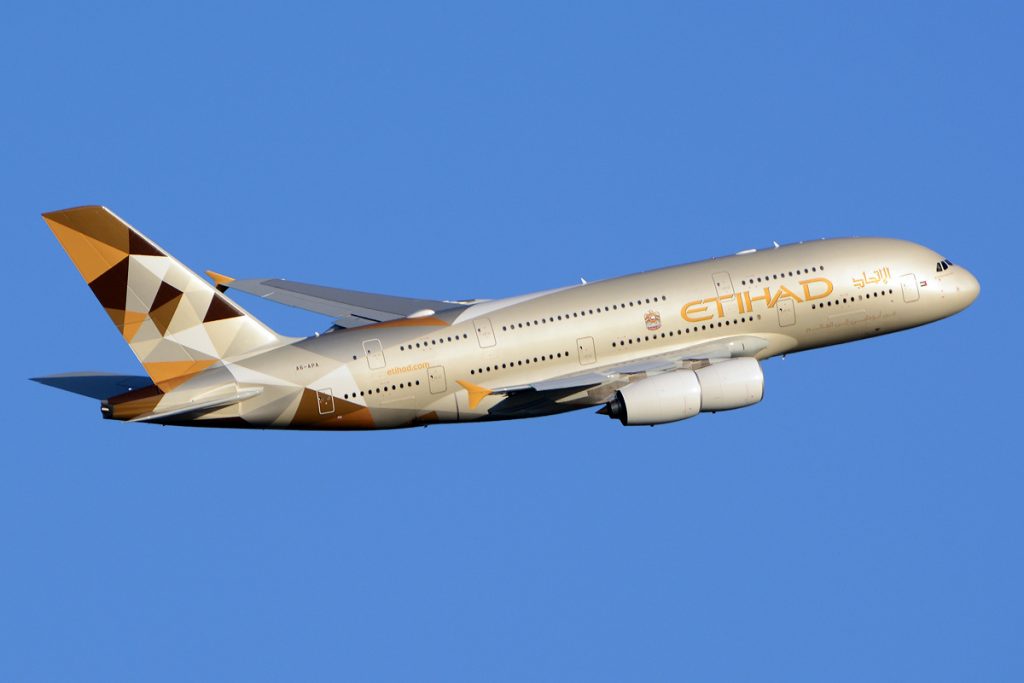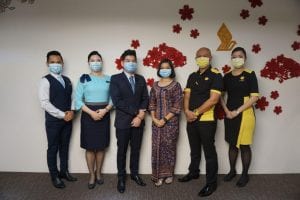Skift Take
Nearly a year into the pandemic, the world's airlines are still trying to find their footing as historically low numbers of travelers take to the skies. Is vaccinating crews and then making it part of an airline's marketing message one way to jumpstart a travel rebound?
While most countries are working to determine if flight crews are essential workers, both Singapore and the UAE are successfully vaccinating their crews at a time when the novel coronavirus vaccine could turn around the state of travel.
But how important is it to an airline’s marketing message that its crews are vaccinated, or is it just one more display of health theater?
The value for airlines is two-fold from a marketing and branding perspective, said Vanessa Wade, president and CEO at Connect The Dots PR. One, they are protecting their staff and crews and two, showing a commitment to customers.
“When an airline is able to say, we’re going to take the time to vaccinate everyone as a way of saying we care about you, that’s the same way as giving water to someone who needs water or giving them a bonus of some sort,” Wade said.
Singapore Airlines launched a social media and press campaign announcing its first fully vaccinated crews working on three different flights, to a good reception online. Departing all on the same day, each flight was operated by Singapore, regional airline SilkAir and low cost carrier Scoot, the three airlines within the SIA Group.
With 90 percent of pilots and flight attendants signing up for the group’s voluntary vaccine program, the Asia-based airline has been extolling its partnership with the government in rolling out vaccinations for airline workers and the importance the Singaporean government is placing on the aviation sector by prioritizing them for vaccines.
“Our primary objective is the health and safety of our passengers, staff and crew members,” said Singapore Airlines spokesperson James Boyd.
Abu Dhabi-based Etihad also released its announcement to the press and on social media one day before SIA, promoting itself as the first airline with a 100 percent vaccinated crew, in addition to requiring all passengers and crews to complete mandatory testing before every flight.
“We proactively made the vaccine available to all our employees to not only help combat the effects of Covid-19, but to make travelers feel confident and reassured the next time they fly with us,” said Tony Douglas, Etihad Aviation Group CEO.
But with the global rollout of vaccines at different phases and some countries experiencing shortages, many passengers currently flying are not vaccinated, relying on the mandatory testing for international travel until more vaccines are available to the general public. The U.S. has not yet categorized flight crews as essential workers eligible for vaccines. Those decisions are being made by the states.
Either way, will having a vaccinated crew make a difference for passengers regarding whom they choose to fly with?
For Netalis Goodwill, 56, a business analyst from Canton, Georgia, who last flew in 2019, the answer is yes.
“Actually, I will only fly on Delta (personal preference), but in this Covid season, if the crew was not vaccinated, I would definitely book elsewhere. Health over preference,” Goodwill said.
On the other hand, Leslie Cortese, 36, a mortgage loan officer from Austin, Texas, who last flew exactly a year ago on a trip to Cabo, would take no solace in a vaccinated crew. “While vaccinating the crew is one step to helping prevent the spread of Covid inflight,” she said, “that wouldn’t quite provide the comfort I need to fly again. My wife is immunocompromised, so, the health of the other passengers are of great concern as well.”
What’s more, it probably won’t make a difference to 35-year-old Christina Hildebrand, a cashier at supermarket chain H-E-B in Houston, or her family whom she said prefer flying Southwest due to its pricing.
Both airlines and Wade say it’s too early to tell if this is having an impact on flight bookings. Wade doesn’t believe it’ll hurt airlines, especially with how mobile crews are in traveling to different cities and hotels, but expects we’ll know more in a month or two.
“I know a lot of people that have not stepped foot on a plane since last February. And it’s because they’re afraid and so yes they mask up and they wash their hands and social distance, but I think it gives you that extra layer of protection when crews have been vaccinated, so you know they can’t transmit anything,” PR specialist Wade said.
While there is still a small possibility a crew member could become infected with Covid-19 and give it to someone else, the information coming out of Israel suggests that even if a vaccinated person gets the novel coronavirus, the vaccine reduces the person’s viral load and by extension the ability to transmit the virus to another person, said Dr. Richard Dockins, a tropical medicine expert.
“Having a vaccinated crew means they’re largely protected (90 percent-plus) from getting sick with Covid-19,” said Dockins. “From a business continuity standpoint it means they can operate with full crews and not have to worry about quarantining crew members that may have close contact with a Covid-19 case — at least for 90 days after getting the vaccine.”
To date as the coronavirus recovery continues, flight crews for Singapore and its subsidiaries have received two doses, a spokesperson said and crews at Etihad have received at least one, with 75 percent of its entire workforce already vaccinated.
The Daily Newsletter
Our daily coverage of the global travel industry. Written by editors and analysts from across Skift’s brands.
Have a confidential tip for Skift? Get in touch
Tags: airline, airline pilots, coronavirus, coronavirus recovery, covid-19, Etihad Airways, flight attendants, singapore airlines
Photo credit: An Etihad A380 taking off. Richard Vandervord / WikiMedia

